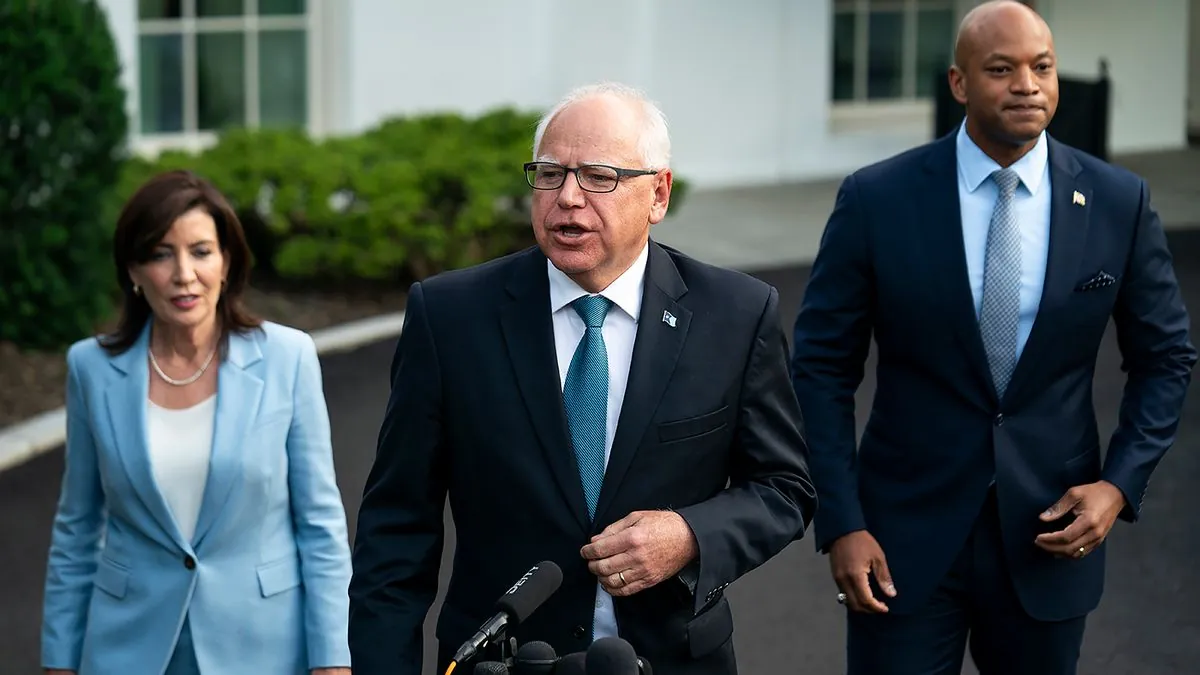In a strategic move to bolster her presidential campaign, Kamala Harris has chosen Tim Walz, the Governor of Minnesota, as her running mate for the 2024 election. This decision, announced on August 6, 2024, reflects the Democratic ticket's focus on appealing to rural and Midwestern voters in crucial battleground states.
Walz, 60, brings a diverse background to the ticket. A former U.S. Representative, National Guard veteran, and teacher, he has served as Minnesota's governor since 2018. His political career has been marked by a progressive agenda, including initiatives for free school meals, climate change goals, and expanded worker benefits.
Walz's selection is seen as a calculated effort to connect with white, rural voters who have recently favored Republican candidates. His extensive 24-year career in the Army National Guard, coupled with his experience as a high school football coach, may resonate with this demographic. The Harris campaign hopes these qualities will attract voters who are not yet committed to supporting Donald Trump for a second term.
The Harris-Walz ticket will face Trump and his running mate, JD Vance, in the November 5, 2024 election. Both Vance and Walz are military veterans from the Midwest, setting the stage for a competitive race in key battleground states.
Walz has already begun campaigning for Harris, adopting a direct communication style that has gained traction. He has criticized Trump and Vance as "weird," an attack line that has been embraced by the Harris campaign and Democratic activists.
"These are weird people on the other side: They want to take books away. They want to be in your exam room."
Walz's political evolution from a centrist congressman to a more progressive governor has drawn both praise and criticism. While this shift may appeal to urban voters, it could also expose him to Republican attacks.
As Minnesota's governor, Walz has faced significant challenges, including the COVID-19 pandemic and the aftermath of George Floyd's death in May 2020. His handling of these crises, along with his record of budget surpluses and support from labor unions, will likely be scrutinized during the campaign.
The Harris-Walz ticket represents a strategic blend of diversity and Midwestern appeal, as the Democratic Party aims to recapture the White House in the upcoming election. As the campaign unfolds, their ability to connect with a broad spectrum of voters will be crucial in determining the outcome of this highly anticipated political contest.
